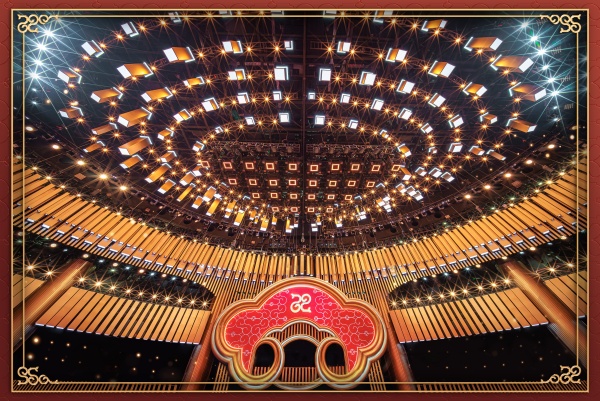
As one of the most digitalized markets in the world, China has built world-class information channels and developed mobile apps to boost economic growth and social development. As a result, China has been transforming into a digitally connected and interactive society, changing the way the Chinese people celebrate traditional holidays.
Till about two decades ago, most Chinese families had only one source of entertainment on New Year's Eve: television. Watching TV programs together with the family, particularly the Spring Festival Gala telecast by China Central Television, had become an organic component of Chinese New Year celebrations.
Since being launched in 1983, the Spring Festival Gala has facilitated the creation of other forms of entertainment and interactive activities during Chinese New Year. For a majority of Chinese people, watching the 4.5-hour-long Spring Festival Gala with family had become one of the main activities of family reunions on Chinese New Year's Eve.
READ MORE: Xi extends festive greetings to non-CPC personages
But after smartphones became popular, affordable and an all-inclusive source of information, entertainment and news, the TV-centered, in-home Chinese New Year celebration changed. Sending greeting messages to friends via a smartphone while watching the gala on TV became a new trend.
CCTV, as the main producer and broadcaster of the Spring Festival Gala, took advantage of this technological revolution by ensuring programs on the big screens of TV could be watched on the smaller screens of smartphones. In particular, CCTV facilitated the development of innovative interactive programs, including voting and grabbing virtual red envelopes, thus encouraging national and international audiences to not only watch the TV program but also participate in the interactive sessions. This gave rise to a new business model, which further consolidated the dominance of TV channels in the advertisement market.
Soon after the mobile phone industry boom, social media became a new but transformative platform, changing the communication pattern of Chinese society. Many social media platforms flourished and formulated a multi-sided market ecology which soon captured almost all cultural events including Spring Festival.
For example, social media platforms provided channels for real-time interactions between the TV programs and the viewers, created space for online discussions and networked dissemination of selective content, and collaborated with TV stations for targeted advertisements, diversifying the commercial structure. Watching TV has now evolved into a multi-media phenomenon characterized by the massive participation of ordinary audience/users.
Social media companies have also become major sponsors of the Spring Festival Gala over the past few years, introducing more digital economy elements into the content including online shopping. As a result, the Spring Festival Gala is no longer just about watching a good program, because TV programs have been transformed into an integrated platform for digital consumption. Combining celebration and consumption is highly consistent with the goal of preserving culture and promoting development.
ALSO READ: What's in a name for Chunjie, now put on UNESCO list?
From online to offline, amid the rapid digital transformation of Chinese society, the Chinese New Year holiday is widely seen as a unique opportunity for promoting various cultural activities such as tourism, plays and films. Thanks to China's highly developed transportation infrastructure, it has become easier for people to travel during Chinese New Year. Instead of staying at home, many families and individuals choose to travel, either within the country or abroad, in order to celebrate Spring Festival in a different way.
If home is the place for family reunion, the outside world could be considered a place for cultural adventure and visiting new places. Digital technology plays a vital role in facilitating mobility during holidays by offering customized services. While digital platforms have become the center stage of the digital economy, it is becoming increasingly evident that social media platforms have been influencing how we celebrate traditional holidays.
As the most dynamic digital market in the world, China has been innovatively combining cultural and economic activities. As a result, more and more people are seeking innovative ways to celebrate Chinese New Year.
The author is professor of Media and Communication Studies at the Communication University of China.
The views don't necessarily reflect those of China Daily.


